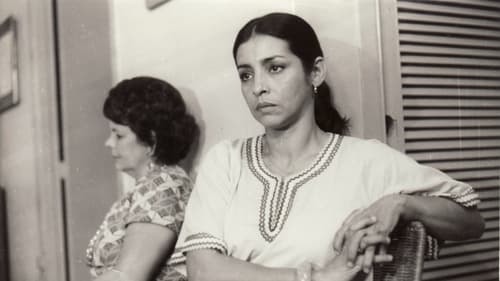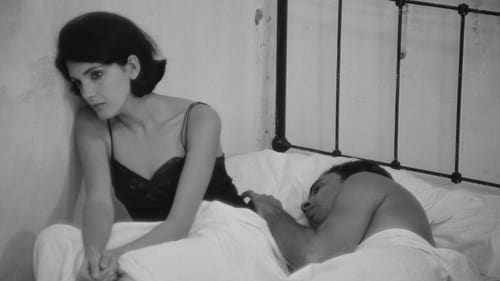Adolfo Llauradó
출생 : 1941-09-29, Santiago de Cuba, Cuba
사망 : 2001-11-03

Ruben lives in Cuba and Andy is exile in the United States. Both are trapped by history at opposite poles and want to change places, but they can't do it.

Matanzas, Cuba, 1913. Two young people who are in love communicate through letters written by penman. When the young man leaves town, to become a pilot, the girl discovers she is really in love with the one who wrote the letters.

An elderly man with wings is blown off course during a tropical storm in this symbolic fantasy. The Old Man lands near a Caribbean island where a poor family gives him shelter in a chicken coop. Father Gonzaga is the skeptical priest who rushes to damn the creature. Soon the Old Man is the subject of curiosity seekers as Elisinda and Pelayo start charging admission. A traveling carnival of human oddities camps near the Old Man as people flock to see the show. The Old Man is reduced to being an unwanted pet, and after six years, he mends his wings and flies away. Nudity, simulated sex with a spider woman, and the ugliness of human exploitation definitely put this fantasy in a category not for children.

A left-wing intellectual, faced with the imminence of his arrest during the coup d'état against President Joao Goulart, lives anguished moments of definition. To the collapse of his small universe is added a conjugal confrontation that unmasks him mercilessly.

The first years of the Cuban Revolution characterized by social transformations and class struggles.

Carlos
The world of a young psychiatrist is shattered when she finds out that her husband is having an affair with one of her patients.

In 19th century Cuba, runaway African slaves known as 'Cimarrons' hiding in settlements in the eastern mountains. But discord among the Cimarrons is sown by a limited offer of freedom from the Spanish. Maluala is part of a trilogy of films about Cuba's slave uprisings made by Sergio Giral, the best known Afro-Cuban director.

Ramón
Teresa is overwhelmed: with a husband, three young sons, a job as a crew leader in a textile factory, and volunteer commitments as cultural leader of her union. Her husband, Ramón, wants more of her attention; her feelings are mixed, wanting domestic peace, feeling responsibilities to the revolution, and wanting to control her own life beyond doing dirty dishes. They separate; he begins an affair. When he wants a reconciliation, she asks what his response would be if she'd had an affair too. "But men are different," is his reply. He's failed her test, and to hold on to independence and self-respect, she remains uncompromising and hard-edged.

Based on the novel Francisco by Anselmo Suárez y Romero, "The Other Francisco" is a socio-economic analysis of slavery and class struggle through the retelling of the original novel. The film contrasts the romantic conceptions of plantation life found in Suárez Romero's novel with a realistic expose of the actual historical conditions of slavery throughout the Americas. It offers a critical analysis of the novel, showing how the author's social background led to his use of particular dramatic structures to convey his liberal, humanitarian viewpoint.

1964, in the Escambray mountains: the area is infested with counter- revolutionary bands which are trying to spread terror among the population and re-establish contact with the US, CIA. The murder of a man led to a reprisal to wipe out the bandits.

Felipe
This Cuban feature examines the circumstances arising out of a woman's claim to have seen the Virgin Mary and to have been healed by waters from a nearby stream. In an accelerating storm of cynical opportunism, her sincere beliefs are exploited by businessmen, politicians and military men. Rival groups compete to exploit the hysteria the vision causes, and the chaos culminates in a revolution. Striking imagery and skillful camerawork enhance this feature.

Cuban peasants wield machetes in a violent uprising against Spanish authorities in the late 19th century.

Tomas
루시아는 각각 다른 시대적 상황을 배경으로 여성해방의 문제를 그린 3부작 옴니버스 영화로, 주인공들의 이름이 모두 루시아다. 1부에서 라파엘을 죽인 루시아는 끌려가던 거리에서 “쿠바는 깨어나라”고 외치는 한 미친 여자에게서 위로를 받고, 2부에서 독재자 바티스타 정권에 넘어간 암울한 극적 분위기를 마무리하는 것은 카메라를 쳐다보는 루시아의 눈이며, 3부에서 혁명군에게 글을 배운 문맹의 루시아가 처음으로 쓴 문장은 “난 떠나요. 난 노예가 아니에요”다. 이렇듯 혁명 이전과 이후 해방의 분위기 속에서도 해방된 삶을 살고 있는 건지 의심스러운 여러 루시아들의 삶을 극적으로 그려내고 있다. 토마스 구티에레즈 알레아 감독과 더불어 현대 쿠바영화의 거장인 움베르토 솔라스 감독은 각 이야기의 시대와 주제에 따라 영화의 스타일을 달리했다. 1890년대의 이야기는 멜로드라마로, 1930년대에는 복고풍의 화면으로, 마지막 1960년대의 이야기는 가벼운 코미디로 그려냈다. 2시간 40분이라는 만만치 않은 상영시간 동안 그는 파노라마처럼 시대의 변화를 담아낸다. 그것을 결국 역사의 흐름이 ‘진보’쪽에 있었음을 능숙하게 설득시킨다. 1960년대 말의 쿠바영화가 고전기 할리우드 혹은 구소련 영화와 맞먹는 형식미를 보여주는 걸작이다.

A young girl joins the guerrilla

(segment "Año Nuevo")
Three stories reconstructing the start of the triumphant Cuban revolution which deposed Batista.












